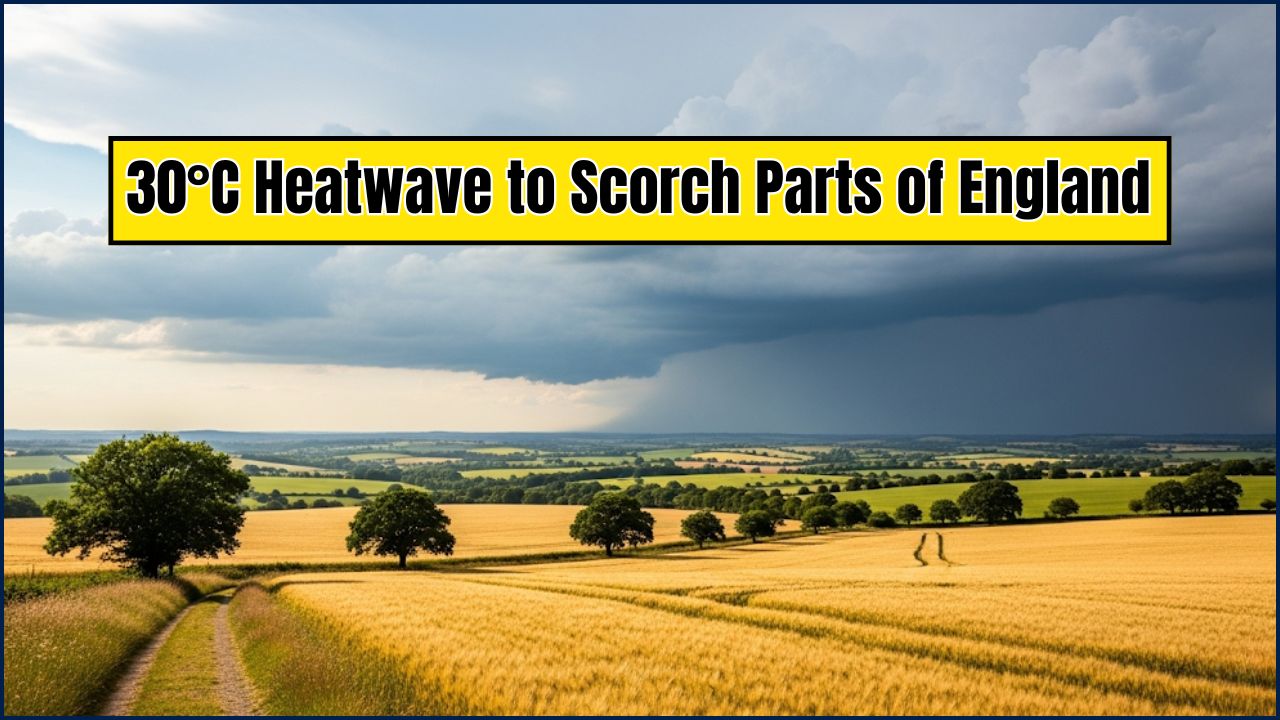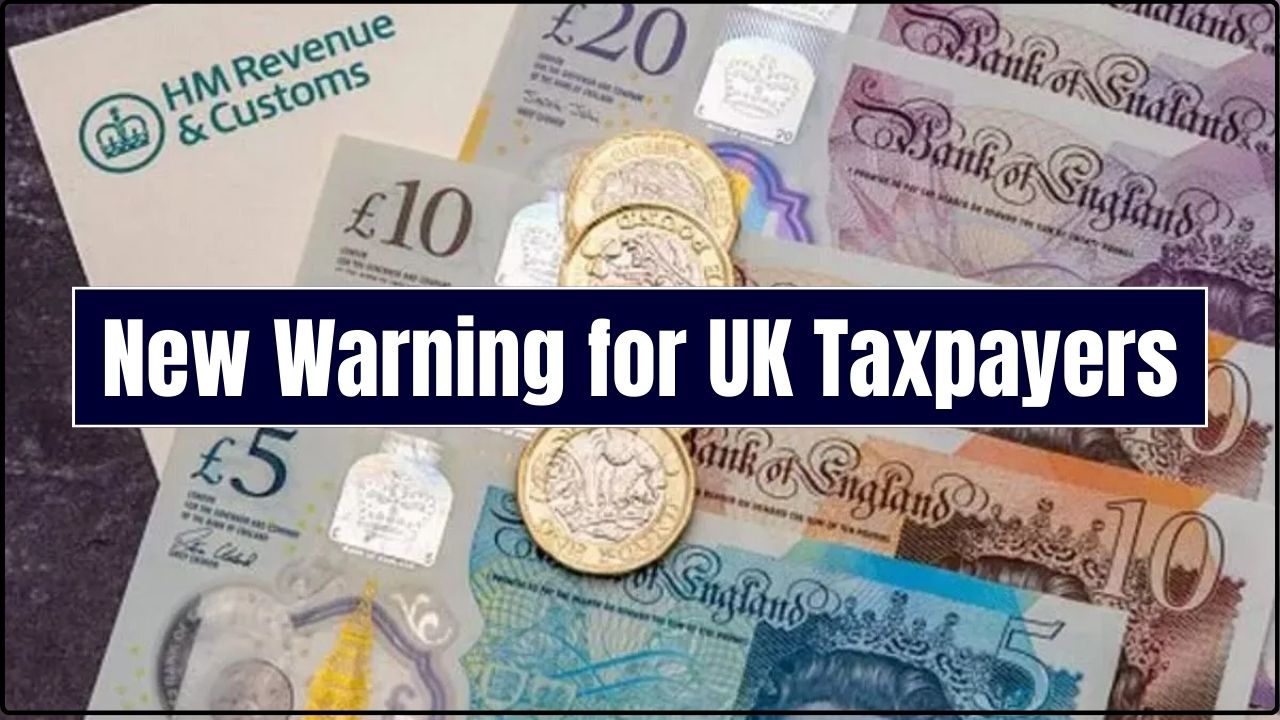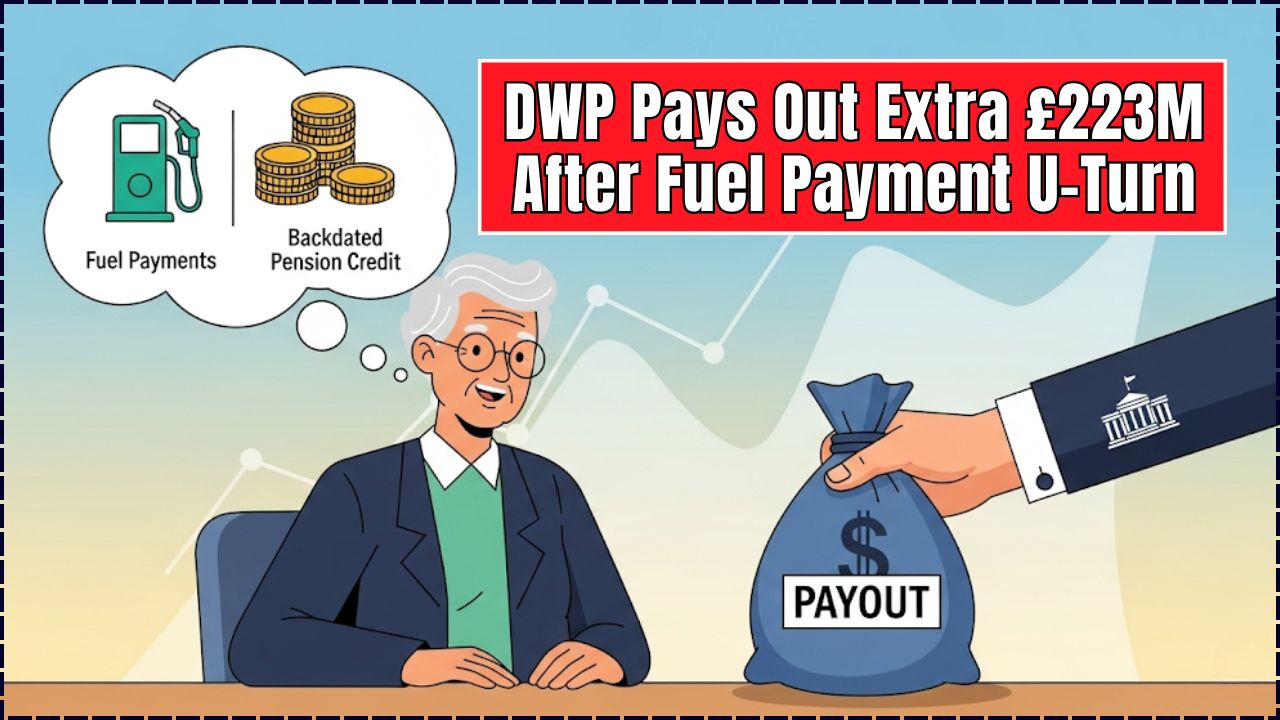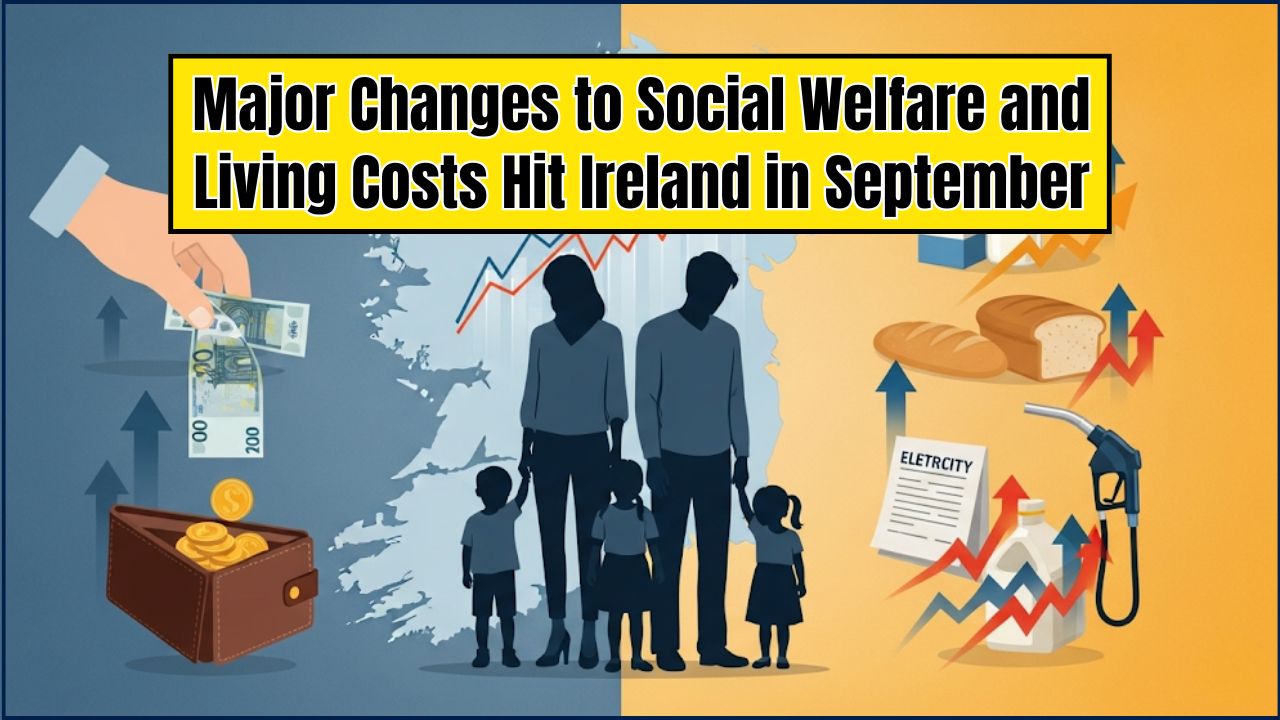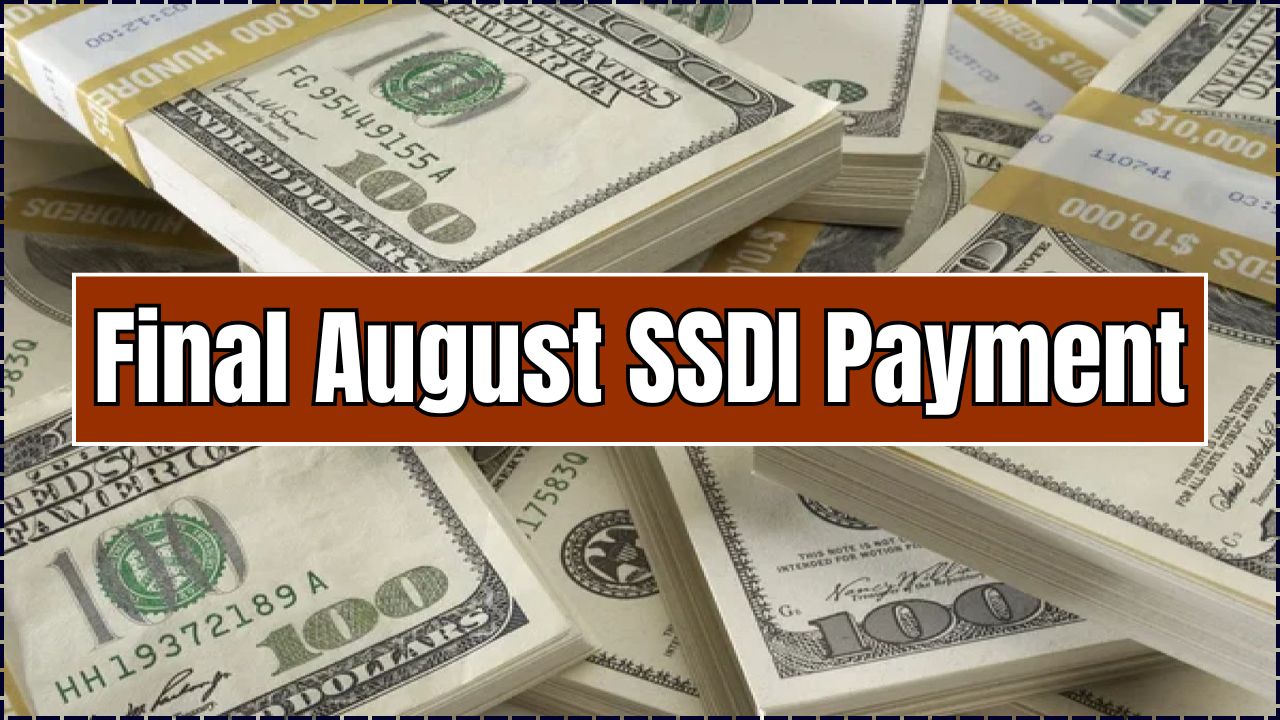When major changes to social welfare and living costs hit Ireland in September 2025, every household—from parents with school kids to seniors on pensions—felt the ripple effects. If you’re living in Ireland or have family back home, you’re probably asking yourself: “Am I affected by all this?”
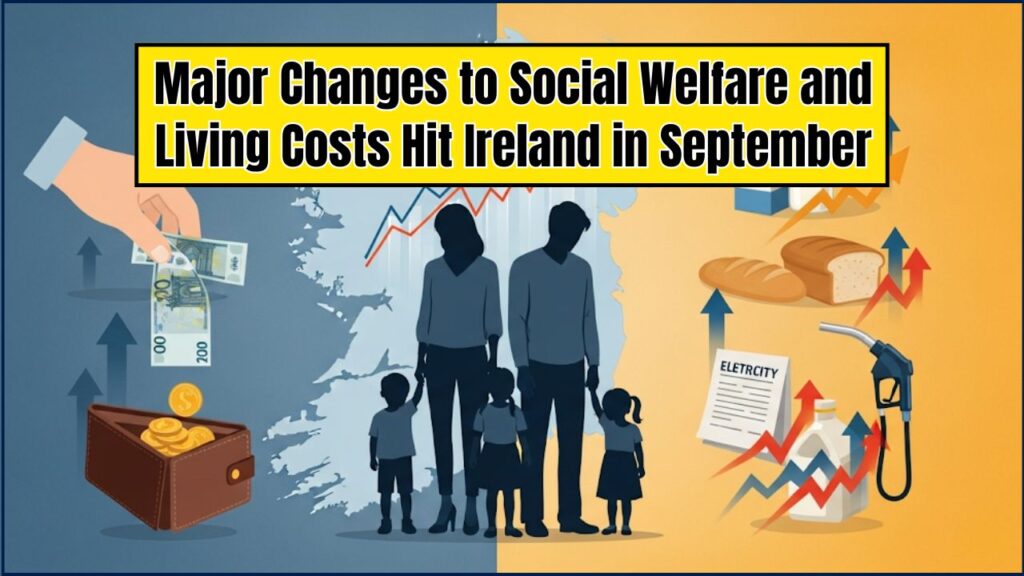
Don’t sweat it—I’ve got you covered. This guide breaks it all down in plain English (with a little U.S. slang to keep it real). Whether you’re a working professional, a parent, or a retiree, you’ll walk away knowing exactly what’s happening, why it matters, and how to prepare.
Social Welfare and Living Costs Hit Ireland in September
| Change/Support | What’s New | Who It Affects |
|---|---|---|
| Free Schoolbooks Extended | Covers Transition Year & Senior Cycle | Families with secondary students |
| Hot School Meals Expansion | All primary schools included | Families with younger children |
| Household Benefits Package Shift | €35 energy credit replaced by direct cash | Seniors, carers, disabled, low-income |
| Fuel Allowance / Lump Sum | Weekly €33 or €462 lump sum starts Sept 22 | 400,000+ households |
| Social Welfare Boost | €12 weekly increase since Jan 2025 | Pensioners, jobseekers, carers, disabled |
| Retirement Auto-Enrolment | Begins Sept 30, 2025 | All workers |
These major changes to social welfare and living costs in Ireland, effective September 2025, are not small tweaks—they’re big shifts aimed at easing financial pressure across society. Families save on education, seniors get fairer energy payments, and workers step into retirement planning with government backing.
Whether you’re a parent, pensioner, or professional, the key is to understand your eligibility, plan your budget, and make smart choices. The Irish safety net is evolving—so make sure you catch it.
Why These Changes Matter
Let’s be real—living costs are still sky-high. Ireland’s inflation may have cooled since 2022, when energy bills were breaking the bank, but families are still struggling with rent, groceries, and school expenses.
This year’s welfare reforms are meant to level the playing field. From kids getting free school meals to seniors getting fairer energy supports, these moves are designed to keep households from slipping behind.
Breaking It Down: Major Changes One by One
1. Free Schoolbooks Extended to Older Students
Before now, free schoolbooks were mostly a primary school perk. As of September 2025, that benefit extends to Transition Year and Senior Cycle (Leaving Cert) students.
- Why it matters: Parents save €350–€500 per student annually.
- Example: Mary, a Dublin mom of two teenagers, said, “I used to dread August—book lists were brutal. This change means I can redirect that money toward uniforms and sports fees.”
2. Hot School Meals in Every Primary School
The Hot School Meals programme now covers all primary schools.
- Why it matters: For a family with two kids, that’s €1,000+ saved per school year on lunches.
- Health twist: Meals are healthier now—high-sugar and fatty foods are out.
- Pro tip: If your child has allergies, double-check the school’s supplier for menu options.
3. Household Benefits Package (HBP) Shake-Up
Goodbye, €35 monthly energy credit. Hello, direct cash payments.
- Why it matters: You decide how to spend the money. More fairness across providers.
- Real-life tip: Treat it like part of your monthly budget, not “bonus cash.” Put it toward essentials first—electricity, heating, or groceries.
4. Fuel Allowance and Lump Sum Payments
Over 400,000 households will get extra help with heating bills starting Sept 22:
- Option A: €33 per week Fuel Allowance
- Option B: €462 lump sum
- Example: Tom, a retired farmer in Mayo, prefers the lump sum: “I buy heating oil in bulk, so a big upfront payment makes sense for me.”
5. Social Welfare and Pension Increases
From January 2025, most core social welfare payments rose by €12 per week.
- Pensioner couple = €1,248 extra per year.
- New rates: Contributory State Pension = €289.30/week (under 80) and €299.30/week (80+).
- Why it matters: That’s a real cushion against inflation, especially for fixed incomes.
6. Auto-Enrolment into Retirement Savings
From Sept 30, 2025, all workers without a private pension will be automatically enrolled into a retirement plan.
- Employer matches contributions, plus a government top-up.
- Think of it as Ireland’s version of a 401(k).
- Pro tip: Opting out is possible, but you’d leave free money on the table.
2024 vs. 2025 Household Supports
This table breaks down some of the major changes between last year’s supports and what’s available now.
| Benefit/Support | 2024 | 2025 | Impact |
| Fuel Allowance | Standard weekly payment + one-off €100 bonus | Standard weekly payment + one-off €200 bonus | More support for heating costs. |
| Back to School Allowance | €150 per child | €175 per child | Increased support for families with school-aged children. |
| Household Benefits | Free TV Licence & electricity/gas allowance | Free TV Licence & electricity/gas allowance | No change, but continued support is crucial. |
Historical Context: How Did We Get Here?
Let’s rewind a bit. During the 2022–2023 cost-of-living crisis, Ireland rolled out temporary energy credits (€200–€600 per household) and double welfare payments. Fast-forward to 2025, and the government is replacing temporary fixes with more structured, permanent supports.
That shift—from emergency patches to long-term policy—marks a new phase in Ireland’s welfare story.
Practical Advice for Households
- Check eligibility for allowances at Gov.ie.
- Use budgeting apps like Mint or YNAB to track cash supports.
- Compare energy providers. Even with cash payments, switching could save more.
- Talk pensions early. Don’t wait until you’re 50—auto-enrolment is a chance to start now.
- Meal prep smart. Use hot school meals as a base and cut grocery spending.
Expert Insights
Economist Seamus Coffey noted that, “Ireland is shifting from reactive crisis payments to proactive household supports. That’s healthier for long-term stability.”
Meanwhile, NGOs like the Society of St. Vincent de Paul stress that housing costs remain the elephant in the room: welfare reforms help, but affordable housing is the real battlefront.
Impact on Irish-Americans and Expats
If you’re an Irish-American with family back home, these changes may ease the financial pressure on relatives. For professionals sending remittances, less strain on fuel and food costs could mean your support stretches further.
Future Outlook: What’s Next?
Looking ahead to Budget 2026, analysts expect more focus on housing supports, childcare, and climate-linked energy policies. With EU rules shaping the scene, future welfare tweaks may focus on sustainability and affordability.
Real-World Case Study
Meet Sarah, a single mother of two in Cork. She was worried about paying for new school uniforms and books this September. Thanks to the increased Back to School Clothing and Footwear Allowance, she received a €175 payment for each of her children. This, combined with the one-off Fuel Allowance bonus, has given her peace of mind and helped her manage the financial pressure of the new school year.
Top 3 Mistakes to Avoid
Don’t let these common missteps stop you from getting the support you’re entitled to.
- Not applying for every benefit you’re eligible for: Many people think they only qualify for one payment, but you might be eligible for multiple. Use the resources below to check everything.
- Missing the deadline: The application window for some one-off payments and allowances can be short. Make sure you apply on time to avoid delays.
- Failing to update your information: A change in your household (e.g., a new family member, a change in employment) could affect your payments. Always keep the Department informed.
FAQs
Q1: Do I need to apply for free schoolbooks or hot meals?
Nope. Schools handle distribution—parents don’t need to apply.
Q2: Who qualifies for the Fuel Allowance?
Mainly those 66+ on pensions, certain carers, and low-income households.
Q3: How much is the new pension rate?
€289.30/week (under 80) and €299.30/week (80+).
Q4: What happens if I don’t want to join auto-enrolment?
You can opt out, but you’ll lose employer and government contributions.
Q5: How much can families save on school costs?
Between free books and hot meals, families could save €1,500+ annually.

